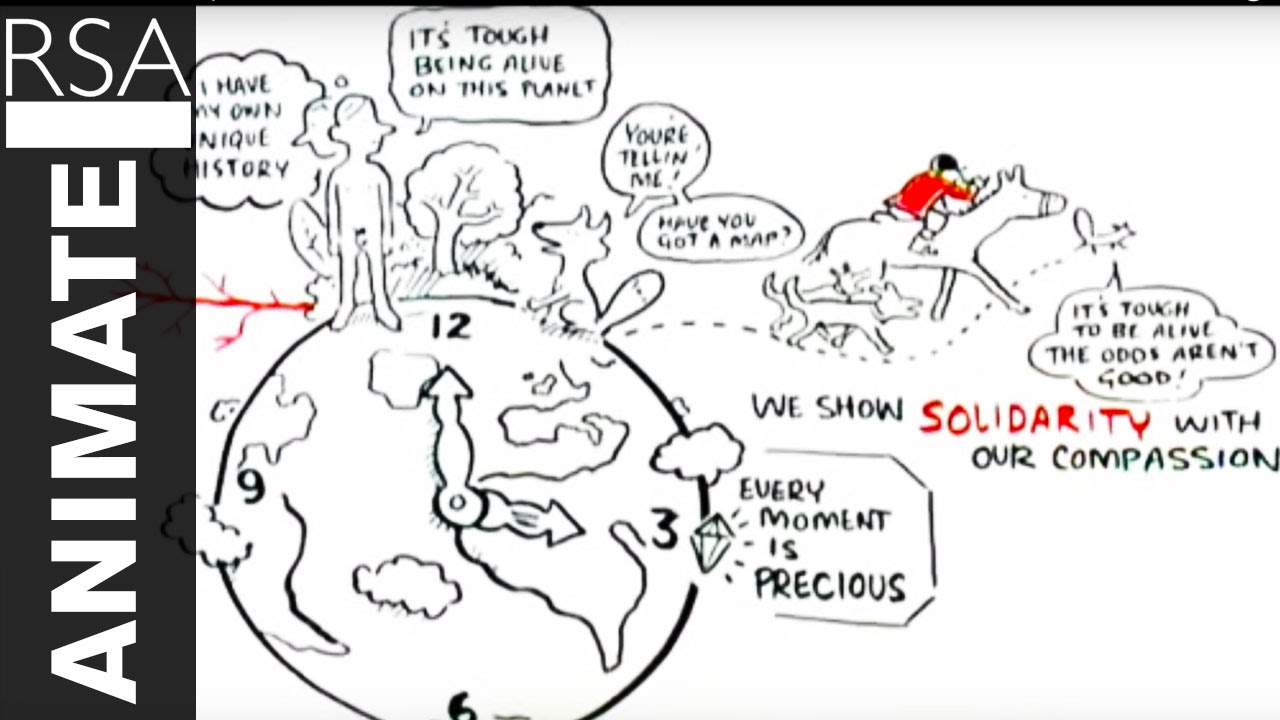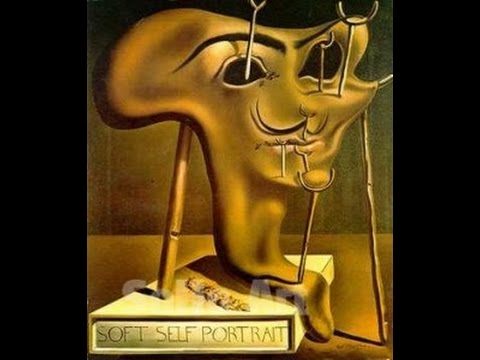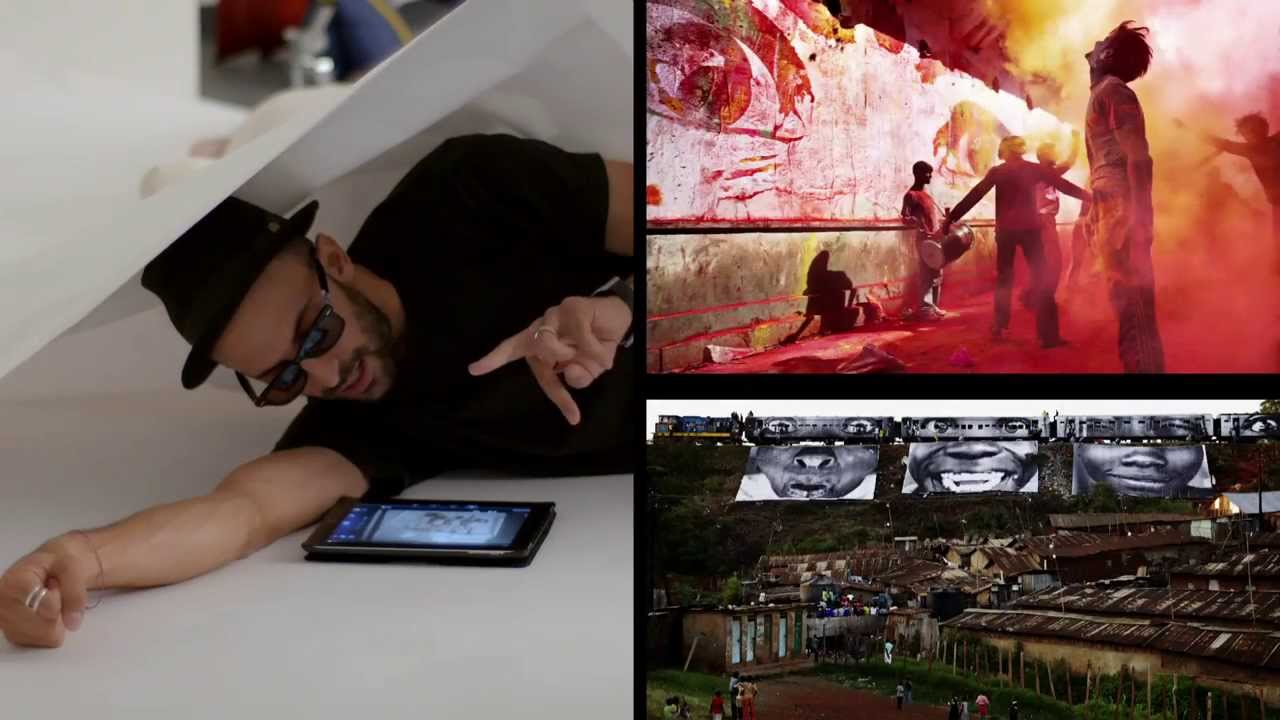Bestselling author, political adviser and social and ethical prophet Jeremy Rifkin investigates the evolution of empathy and the profound ways that it has shaped our development and our society. Taken from a lecture given by Jeremy Rifkin as part of the RSA’s free public events programme.
The RSA is a 258 year-old charity devoted to creating social progress and spreading world-changing ideas. For more information about our research, RSA Animates, free events programme and 27,000 strong fellowship.
Follow the RSA on Twitter: https://twitter.com/RSAEvents
Like the RSA on Facebook: https://www.facebook.com/rsaeventsofficial/
Listen to RSA podcasts: https://soundcloud.com/the_rsa
See RSA Events behind the scenes: https://instagram.com/rsa_events/
——
Produced and edited by Abi Stephenson, RSA. Animation by Cognitive Media.
The RSA
Source




Utopian civilization would ensure its denizens develop proper empathy. Perhaps its denizens start out their existence within an ancestor simulation so they are able to experience the pain and disparity experienced by their fore-bearers.
Grr why is it impossible to find this with decent quality.
waaaaaaaaaaaaw
Empathy is what creates a Utopia (Heaven) where good will, comfort, pleasure, and harmony are naturally shared.
Apathy is what creates a dystopia where ill will, discomfort, pain, and chaos are unnaturally diseased in humanity.
Sympathy is what is needed for apathy to make its way back to Empathy so that humanity is eased back to bliss!
You just made my test tomorrow harder?
this guy sounds like how i think all scientists sound in my head when i read papers
Thanks!
Amazing how these empathic creatures that we are manage to breed and slaughter 50.000.000.000 animals and kill many many more sea creatures on a yearly basis!
Great talk, and animation. If you like this, you might like Jill Bolte Taylor's TED talk 'My stroke of insight', and Richard Wilkinson's TED talk 'How economic inequality harms societies'.
You might also like Temple Grandin's book 'Animals in Translation', or her TED talk 'WE need all kinds of minds'; and 'The Master and his Emissary' by Iain McGilchrist (who also has some excellent talks on YouTube – as I suspect Temple Grandin might, come to think of it).
For a look at what the absence of empathy can look like on the large scale, Naomi Klein's 'The Shock Doctrine' is unbeatable – you read it, and instantly realise how right the author is; though it's not all cheery reading.
The biggest obstacle is that we still haven't completely gotten rid of 'racial ties' and 'religious ties'. Before we try to get rid of national identiites, we need to get rid of those first.
This completely explains why Progressives are obsessed with the disenfranchisement of anyone they disagree with.
Simply run the capacity to empathize in reverse, but add cultish contempt overdriven by hysteria.
when did this lecture take place?
Nonsense. Empathy is only extended either when the extender is economically secure or there is expected reciprocity. Maslow was right.
Even though we share almost all, our experiences have been different; some experiencing family violence, murder of a parent, sexual molestation and a host of other negativity as well as others who have had a almost perfect childhood, family, etc. Persons who have been sexually molested can understand others who have been molested as it is with almost all who have shared the same experience. However the person molested cannot understand the suffering of the molester and here lies the problem. We can not empathize with those who have suffered from experiences different from ours, even though we may understand the suffering of those persons who have shared our experience or similar experiences.
For sure there is a role for empathy and compassion within the human family. There are certain moments where it should be the primary value we hold. On the other hand, it is a very dangerous thing to suggest that empathy and compassion should be the primary value in most situations. But the push to make empathy and compassion a primary value in most situations is an ongoing goal of culture destroying, post-modernism. In most moments in life, other values are far more important. For example, I should expect honesty from children even if their family background is fragile. For example, get things wrong and your sense of empathy can end up enabling an alcoholic partner, relative, or friend. For example, having too much empathy can cause an elderly person to stop being self-sufficient… sometimes tough love is needed.
The limitations of empathy and the REAL dangers that too much empathy can give rise too were not even touched on in this video. If empathy is applied as suggested, the world would increasingly become a place where increasing numbers of people would feel that they could live dysfunctional lives and that others have to feel empathy for them and step in and help them. A negative downward spiral would set in and we would all have to be pushed to the limit of our ability to offer empathy. Look at the dysfunctional, empathy-driven, safe-spaces idea on universities. You first need to expect that both yourself and others are doing their best to get on with their lives. Then having empathy for the individual who met struggles that got in the way is a much more natural, healthy place.
Of course, there are some of us who have empathy AND the skills needed to actually help people who seem to be unable to help themselves. And they can raise people up. But having this set of skills is for a specific group amongst us. Most of us are not built like this. We have other values and talents to offer. If we got involved with struggling individuals, many of us would make things worse, enable the struggler, or lose hope in ourselves.
As the video says, most of us are born with a sense of empathy. The primary goal in life, however, has to be that each of strives to live a wholesome life that places little demand on the community to feel empathy for us. Get that right, and there will be more than enough empathy around to help the relatively few of us who are going through accidental or short-term crises. Teach a woman to fish, get her to be self-sufficient, and you don't need to feel empathy for her. You can rejoice at her success. The 'we must have compassion' movement, however, also encourages the young to live lives that lead to more struggles in life. For example, rather than teaching her to fish, they teach her a sexual norm that can only increase her risk of struggling in life. You can't teach empathy and then shove women under a bus. That is no very empathic. You have to teach responsible social behavior – how to look after youself so you are less likely to encounter risks that seriously can harm your life.
Originally posted 2010. Eight years later this almost sounds nauve.
Sounds like COMMUNISM! haha nah it's a great video
While I think that in theory, these ideas are nice. I think that they are naive idealism when put into actual practice.
Brilliance
This video has given me a mental framework for understanding and explaining my connection with the planet. Many younger people seem to think all older people selfishly indulge in ecologically unsound activities because we don't give a damn because we know we don't have need for a life sustaining planet that much longer. I so hate being judged based on others' wrong assumptions and stereotyping.
I struggle to have others understand that most of my waking day is influenced by my awareness of the nature around me. I have to be able to see out the window. I have to be able to walk over uneven terrain on a forest path or beach. When I swim in a lake the physical contact with the water is an affirmation of my connection to it all. The natural sounds all around me deepen the privilege of being alive. Even when a coyote carries off my pet dog I experience it as the natural way of life and death.
When I inadvertently allow a bag of spinach to die in my fridge, my remorse isn't for the dollars I paid, or the guilt I feel about people starving elsewhere – I ache at realising that the environmental harm done to produce that bag of spinach for me, and all the steps taken to get it from the field to me – the miles travelled, the gas consumed, the plastic it was packaged in; was for naught – I failed to respect the price the earth has paid to produce that spinach for me and so my harm is multiplied.
So THANK you for this video I'm sharing it in the hopes that understanding is infectious.
You're all wrong. You don't help because you feel sorry for some and don't help those you don't feel sorry for. You help because you have the means and someone has asked you to. To help someone based on your feelings is to make judgements about that person. Likewise, you shouldn't seek reward for the things you've done "out of the kindness of your heart" and that includes the giant 'swell-guy' ribbons people tend to pin on their chests. Better to go to your prayer closet and be thankful for having the ability to help.
it never occured to me before, that the term "invisible hand" used here is precisely our problem, i mean the system that usually uses this term and thats capitalism.
The animation does nothing but detract from an important and thoughtful presentation.
Brilliant!
You can have empathy with no mortality, mortality isn't the only form of suffering brought to us by the human condition
The description of the experiment that lead to the discovery of mirror neurons is totally wrong: the macaque was not in an MRI scanner, but had electrodes directly implanted in the brain, and was not opening a nut but reaching for food. It is not possible to run such a task in an MRI due to the body movements that hinder the MRI image quality
Kim nossal has large eyebrows
CHECK MATE
This is a cute idea, but flood in many ways. If her empathy is extended by our ties that bind how do we explain things like Civil War, Brothers that murdered each other for power, others that kill their own children, or even abortion? Are these not ties that bind more deeply and even a nationstate or some biosphere? Our struggle is not equal based on the planet we live, nor can I experiences be the same. Even more we should not desire that our experiences be the same for there we will lose our whole beauty of our existence. If we lose that which does make us human what is the point of our existence, is therefore better that we should all ourselves to be utterly destroyed.